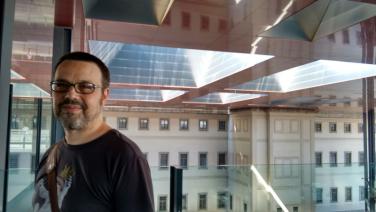
With the advances in technology and the expansion of possibilities, the increase in the importance of VFX in the cinema and the increase in the size of production teams, the need for professionals to specialise has also gradually increased. This brings both positive and negative consequences, both of which must be taken into account. From the application of very restrictive standards to hierarchical organisation and from the need for daily revisions to interdepartmental meetings, everything changes when, instead of a project being carried out in an “artisanal” way by a few artists who are very capable generalists, it is handled by a large production company with hundreds of artists with different specialisations and very diverse levels of experience and ability. How does this affect artists and professionals? How does this affect the students who are making a start? What problems do each of the different ways of working generate? From “boutique” to major post-production company. Mandatory changes in the working methodology when a company grows.
Erasmo Torallas Bachelor of Fine Arts specialising in Sculpture from the Complutense University of Madrid. More than 20 years of experience in the field of 3D, mainly in Spain, returning here after years in London in the best international companies in the sector, and importing the best “recipes” for working in large teams. With his origins in the field of traditional sculpture and after a brief experience with set design, he turned to 3D during the first major expansion in the creation of computer-generated images. After years of working in advertising, he focused his career on film and TV, and after participating in two Goya-winning projects he made the leap to international AAA productions in London. With a generalist vocation, and knowledge in all areas, he specialises in modelling, the creation of environments and lighting.
With the advances in technology and the expansion of possibilities, the increase in the importance of VFX in the cinema and the increase in the size of production teams, the need for professionals to specialise has also gradually increased.
